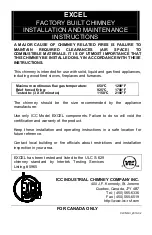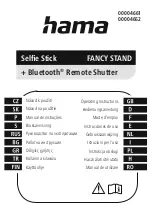
7 - Appendix
Technical Specifications
E-MU 1820M/1820/1212M PCI Digital Audio System
131
MIC PREAMP/LINE INPUT
Type
TFPro™ combination microphone preamp and line input
Frequency Response
+0.8/-0.1 dB, 20 Hz - 20kHz
Stereo Crosstalk
< 120 dB, 1kHz
LINE INPUT
Gain Range:
-12 to +28 dB
Max Level:
-17 dbV (19.2 dBu)
THD+N:
-94 dB (.002%), 1 kHz at -1 dBFS
Dynamic Range:
100 dB (A-weighted, min. gain)
SNR:
100 dB (A-weighted, min. gain)
Input Impedance:
10K ohm
CMRR:
> 40 dB (60Hz)
MICROPHONE PREAMP
Gain Range:
-10 to +50 dB
Max Level:
-12 dbV (-9.8 dBu)
THD+N:
-95 dB (.0018%), 1 kHz at -1 dBFS
SNR:
100 dB (A-weighted, min. gain)
Input Impedance:
330 ohm
CMRR:
> 80 dB (60Hz)
HEADPHONES
Frequency Response:
+0.0/-0.35 dB, 20 Hz - 20 kHz
THD+N:
(1 kHz, max. level)
33 ohm load: -70 dB (0.032%)
600 ohm load: -85 dB (0.006%)
SNR:
112 dB (A-weighted)
Dynamic Range:
112 dB (A-weighted)
Stereo Crosstalk:
< -100 dB (1kHz at -1 dBFS, 600 ohm load)
Max Output Power:
500 mW
Output Impedance:
22 ohms
Gain Range:
85 dB
Specifications: 1820 System
Summary of Contents for 1212M
Page 1: ...1820 1820 Owner s Manual Owner s Manual ...
Page 8: ...8 E MU 1820M 1820 1212M PCI Digital Audio System ...
Page 54: ...4 The PatchMix DSP Mixer Main Section 54 Creative Professional ...
Page 110: ...5 Effects E MU E Wire VST 110 Creative Professional ...
Page 116: ...6 Using High Sample Rates Overview 116 Creative Professional ...
Page 138: ...7 Appendix Internet References 138 Creative Professional ...














































